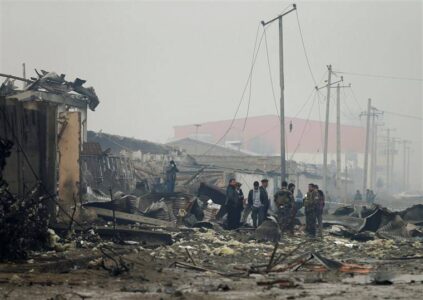
Afghanistan remains the worst-affected country by terrorism
The threat posed by extremist groups, including the Islamic State (IS) and Al-Qaeda in conflict areas like Afghanistan, Iraq and Syria has been exacerbated by the coronavirus pandemic, UN experts say.
In a new document, a panel of UN experts warned that Daesh would try “to end its marginalisation from the news” with a new wave of violence as the terrorist group wants its supporters to spend less time on social media.
According to the report, Daesh] has enjoyed a captive audience, with so many people facing [COVID-19] restrictions on movement and spending more time online.
“Threats could have accumulated during the period that remains undetected but could manifest in due course,” Sputnik quoted the report as saying.
But despite a wave of attacks in Europe, the panel explained, the threat remained comparatively low in non-conflict areas.
In their report to the UN Security Council, the expert said the threat continued to increase in conflict zones in the last six months of 2020.
“The pandemic inhibited forces of law and order more than terrorists”, who could move and gather freely despite coronavirus curbs, the Associated Press said.
With the Covid restrictions easing in various parts of the world, the panel said, UN member states feared “a rash of pre-planned attacks may occur.”
Afghanistan remained the country worst affected by terrorism in the world, the report said, calling the situation in the country challenging.
Since Feb. 29, when the US and Taliban signed a peace pact in Doha, over 600 Afghan civilians and 2,500 security personnel had been killed in attacks. “Terrorist activities and radical ideology continue to be a potential source of threats to the region and globally.”
The experts said: “Al-Qaeda assesses that its future in Afghanistan depends upon its close ties to the Taliban, as well as the success of Taliban military operations in the country.”
They estimated the number of Al-Qaeda militants and their affiliates at 200-500 in at least 11 provinces of in Afghanistan.
Source: Pajhwok





